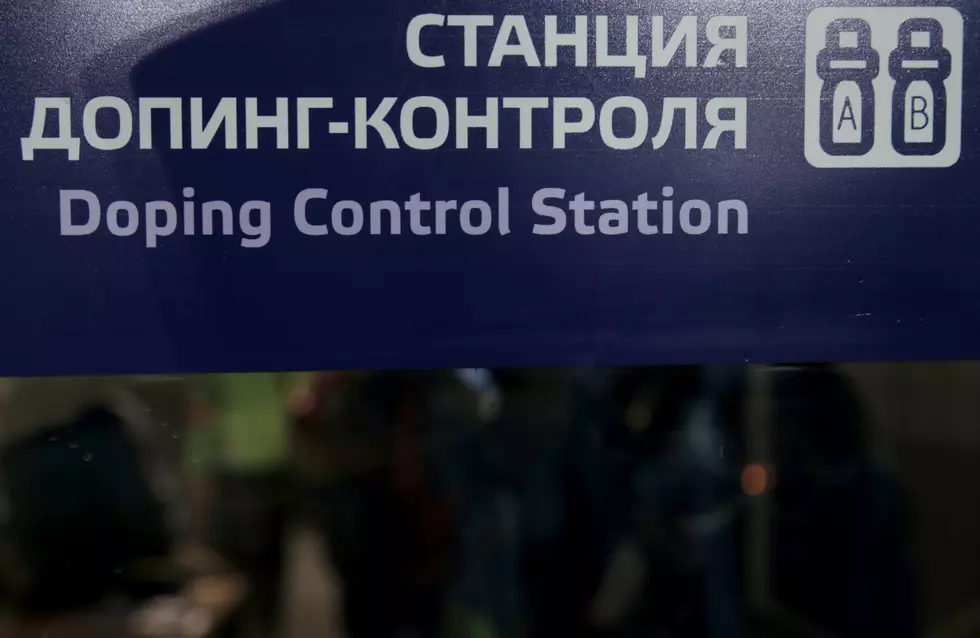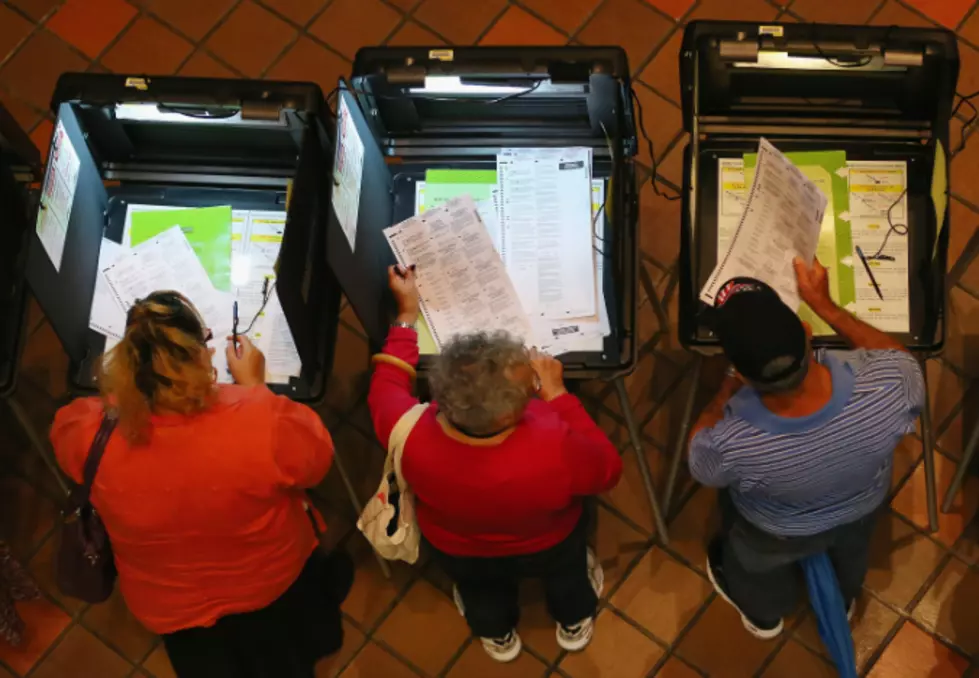
Putin Foe Alexei Navalny Found Guilty of Fraud
NATALIYA VASILYEVA, Associated Press
MOSCOW (AP) — Alexei Navalny, the anti-corruption campaigner who is a leading foe of Russian President Vladimir Putin, was found guilty of fraud and given a suspended sentence of three and a half years on Tuesday, while his brother was sent to prison.
More than 18,000 people have said on Facebook they will take part in a protest Tuesday evening near the Kremlin, and Alexei Mayorov, a security official in the Moscow mayor's office, warned that any attempt to hold a rally would be quickly blocked because it has not been officially sanctioned.
Police have deployed around a central square just outside the Kremlin wall.
The provocateur punk group Pussy Riot released a video supporting Tuesday's demonstration, featuring four stylishly dressed women sweeping snow from the square, then mounting their brooms and flying off as witches across the Kremlin wall in a performance symbolizing protest.
Two of the performers, Nadezhda Tolokonnikova and Maria Alekhina, spent nearly two years in prison on charges of hooliganism for mounting an anti-Putin protest in Moscow's main cathedral in 2012, and won global fame.
Tuesday's verdict had been scheduled for next month, but the court session was abruptly moved forward to the day before New Year's Eve, the main holiday in Russia, in what was widely seen as an attempt to head off protests. Russia's main nationwide state-controlled television stations refrained from reporting the verdict.
Navalny and his younger brother Oleg were convicted of defrauding a French cosmetics company and given the same sentence as each other, but Oleg's was not suspended. The court also fined each of them 500,000 rubles (about $8,800) and ordered them to pay some 4 million rubles ($77,000) in damages.
Oleg Navalny, the father of two small children and a former executive of the state-owned postal service, has never played a role in the Russian opposition movement and his imprisonment could echo the Soviet-era practice of punishing the relatives of inconvenient people.
"Aren't you ashamed of what you're doing? You want to punish me even harder?" Alexei Navalny shouted out as Judge Yelena Korobchenko handed down the sentence for his brother.
Alexei briefly entered the metal cage that his brother was put into after the verdict and appeared to be holding back tears.
"This is the most disgusting and vile of all possible verdicts," Alexei Navalny said outside the court.
"The government isn't just trying to jail its political opponents — we're used to it; we're aware that they're doing it — but this time they're destroying and torturing the families of the people who oppose them," he said, and called for people to attend the protest on Tuesday evening.
The suspended sentence means that it could be converted into a prison term at any time, by court order, in the event that Navalny offends again.
He has been under house arrest since February, and his lawyer Vadim Kobzev told The Associated Press that he will remain there until all appeals by either side are exhausted, which could take months.
Independent Moscow-based political analyst Masha Lipman said the verdict is a message to the entire Russian opposition: "All of you guys are at our mercy."
Lipman said it was clear the Kremlin had decided not to make a martyr out of Navalny, with the aim "not to consolidate the opposition, but to demoralize and intimidate it."
The trial seemed to be full of inconsistencies and loopholes.
The company involved, Yves Rocher, wrote a complaint to investigators about the Navalny brothers' firm, but its representatives have insisted throughout the trial that there never were any damages. The French executive who wrote the complaint also left Russia shortly afterward and never attended the hearings.
The prosecutors insisted that the brothers forced the company "into disadvantageous contracts" and defrauded it of 26 million rubles (about $440,000).
The brothers had both arrived at the courtroom with luggage, indicating they expected to be immediately imprisoned.
Navalny, a lawyer and popular blogger, rose to prominence with his investigations of official corruption and played a leading role in organizing massive anti-Putin demonstrations in Moscow in 2011 and 2012.
In a 2013 trial in a different criminal case, he was found guilty of embezzlement and sentenced to prison, but he was released the next day after thousands of people protested in the streets of Moscow. He was then handed a suspended sentence and finished a strong second in Moscow's mayoral election in September 2013.
The verdict and sentencing add to anxiety over the Russian economy's plunge this year. By Tuesday evening, the Russian benchmark index MICEX was down more than 2 percent
Russian tycoon Mikhail Khodorkovsky who spent 10 years in jail before he was pardoned last year dismissed the verdict as Putin's revenge for Navalny's activism.
Khodorkovsky said in a statement that he is "not even surprised that Putin and his entourage are capable of vile tricks, deception, forgery and manipulation — they are not capable of anything else."
New York-based Human Rights Watch said the verdict sends a message "to independent voices to expect a harsher crackdown in 2015."
Still, some members of the Kremlin-controlled parliament suggested the sentence was too light and should be appealed by prosecutors, which is permitted under Russian law. Mikhail Markelov, a leading lawmakers from the main Kremlin-controlled United Russia party, told the news agency Tass that "everything should be done to achieve reconsideration of this sentence."
___
Jim Heintz in Moscow contributed to this report.
Copyright 2014 The Associated Press. All rights reserved. This material may not be published, broadcast, rewritten or redistributed.
More From KTEM-AM









